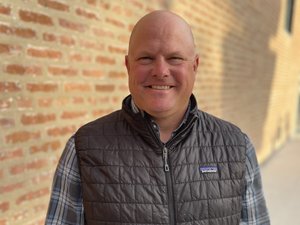Chicago Police Lieutenant and Gladstone Park resident John Garrido was looking for a better way to stay in touch with his neighborhood. Sites like Facebook, Twitter and Everyblock could keep his community connected, but they didn't provide the privacy of a face-to-face meeting.
So he decided to try Nextdoor.com, a social networking site designed for the people who live near you. It verifies the names and addresses to ensure users are who they say they are, creating an environment where residents can engage and share online without the threat of others on the internet reading their posts.
Garrido became the founding member of the Gladstone chapter in February 2013, and now 267 of his neighbors have joined to make it one of the most thriving Nextdoor communities in Chicago. Users post about neighborhood events, lost pets, local job openings, crime, and whatever else the community wants to discuss.
"[Nextdoor] is promoting a lot more interaction, which tech normally doesn’t really do," Garrido said. "People feel more comfortable posting information here. For example people post information looking for babysitters. I don’t think anybody would on Facebook or Twitter say they're looking for a babysitter. You feel more comfortable doing it here because you're dealing with people you know."
Select Chicago neighborhoods were part of 176 communities included in the San Francisco-based company's launch two years ago. Now more than 39,000 neighborhoods across the U.S. use Nextdoor, according to co-founder Sarah Leary. The company was founded in part because too few people actually know their neighbors, she said. 29 percent of Americans know only a few of their neighbors and 28 percent know none, according to a study by the Pew Research Center.
"Technology has helped us connect with all these important parts of our lives and yet there's no easy way to connect with the people who live right outside our front door," she said. "TV and technology are all creating distractions, and we just thought there was a way to reverse this trend. That became the inspiration for starting Nextdoor. How can we use technology as a way to help bring back a sense of community to the neighborhood."
Nextdoor's key feature is in the privacy it gives community members. Only verified residents can join the online group and they must use their real names and addresses. Someone else on the internet can’t just browse a conversation between neighbors.
"That brings real identity to the platform," Leary said. "Which leads to much a more civil conversation and the ability to build an enduring community."
Around 75 percent of the neighborhoods in Chicago use Nextdoor, Leary said, which is higher than cities like Philadelphia and D.C., but lower than Denver, Seattle, and San Francisco. Nextdoor, which has raised $100 million in the last 18 months, currently does not generate revenue but expects to in the near future, Leary said. A combined 40 percent of the sites visitors use Nextdoor for recommendations and classifieds, both of which are areas ripe for advertising dollars, she said. The focus would be connecting neighborhoods with local businesses in order to make Nextdoor feel like more a service than a website with annoying ads.
The Chicago competitor to Nexdoor is Everyblock, a hyperlocal neighborhood platform that's had its fair share of problems. But Nextdoor's privacy feature is what set's the two websites apart, Leary said.
"Everyblock is a company that I’ve watched for a number of years. It's had some unusual twists and turns you don’t normally see," she said. "From what we're hearing from our team in Chicago, Everyblock is a place where you can get some information, but Nextdoor is where there is real community involvement."
In the past three months there's been a 41 percent Nextdoor user growth in neighborhoods, Leary said. 3.5 million messages are sent every day, and 76 new neighborhoods launch each day. The next step for Nextdoor will be to incorporate advertising without turning users off, and continue to introduce the service into new neighborhoods.
"You feel more comfortable [on Nextdoor] because you're dealing with people you know," Garrido said. "It's more of a closed situation. And you might not want certain things you put out there to go to the general public."








